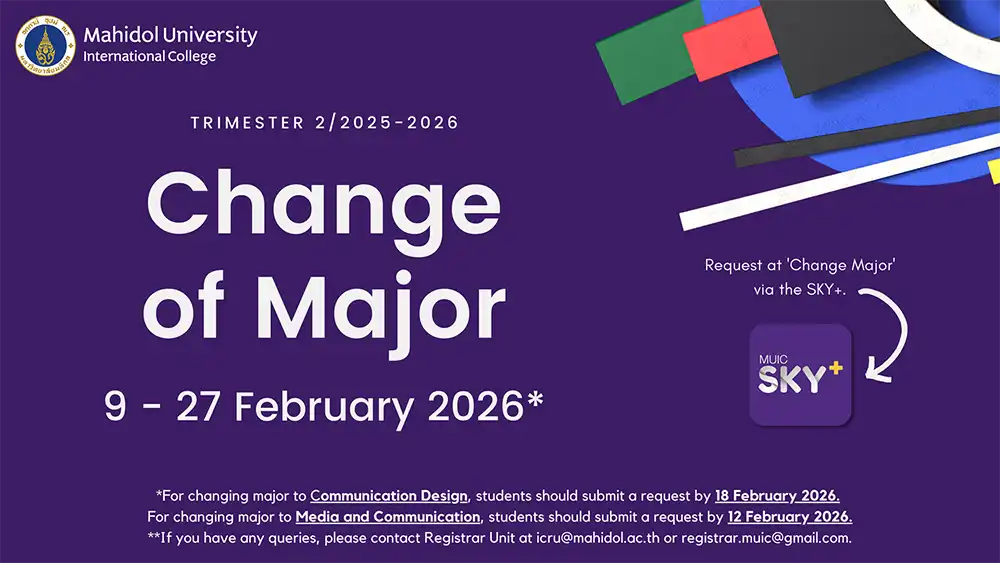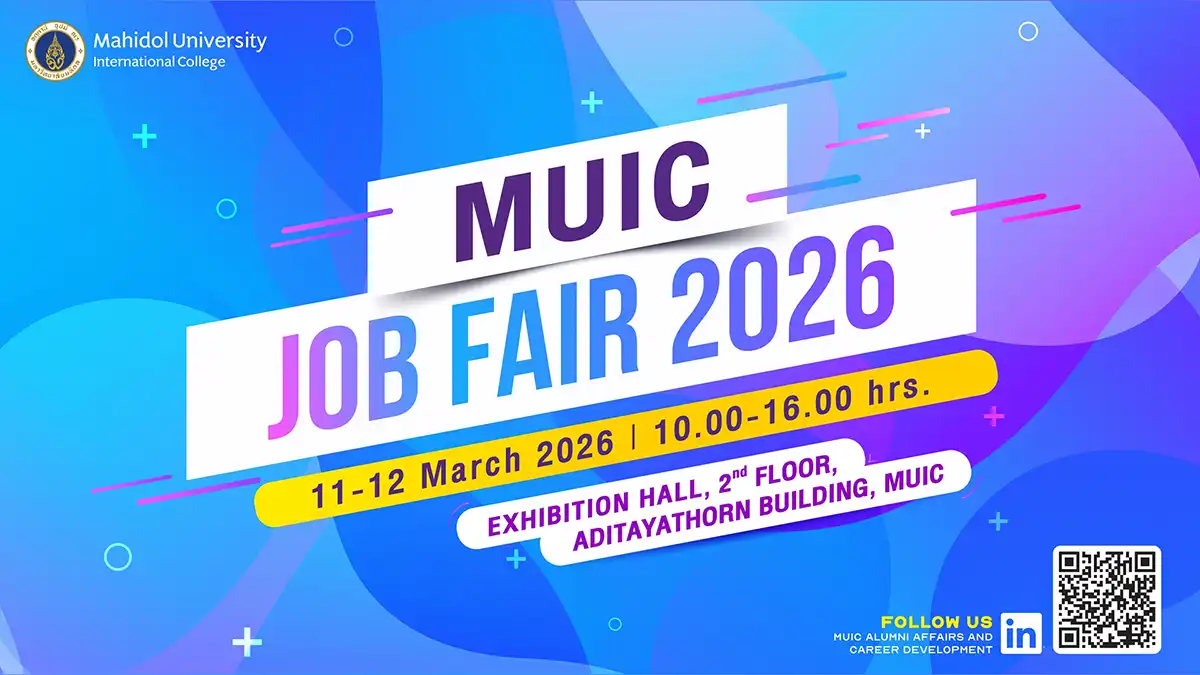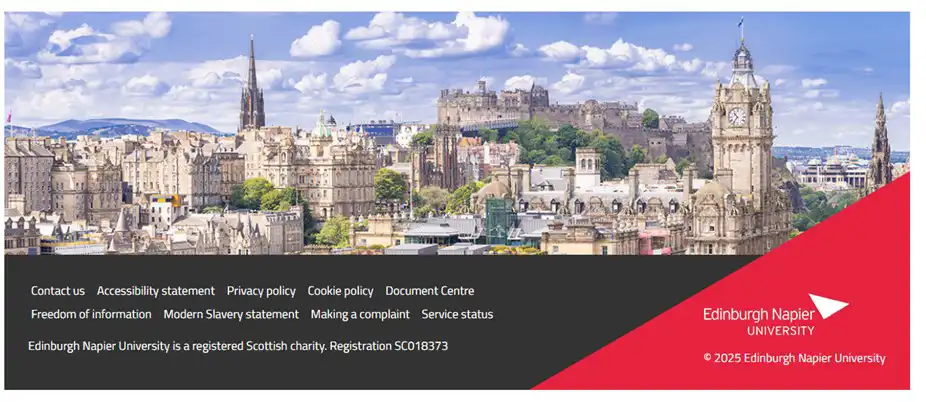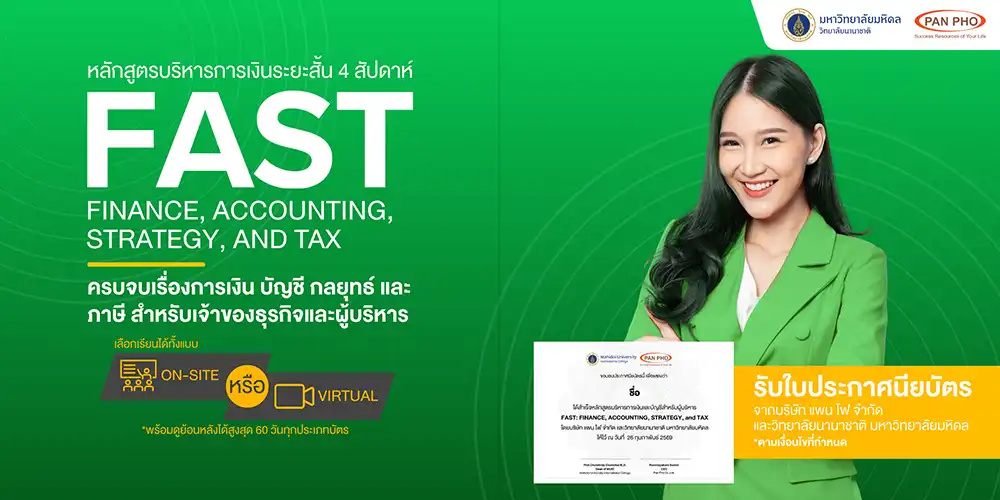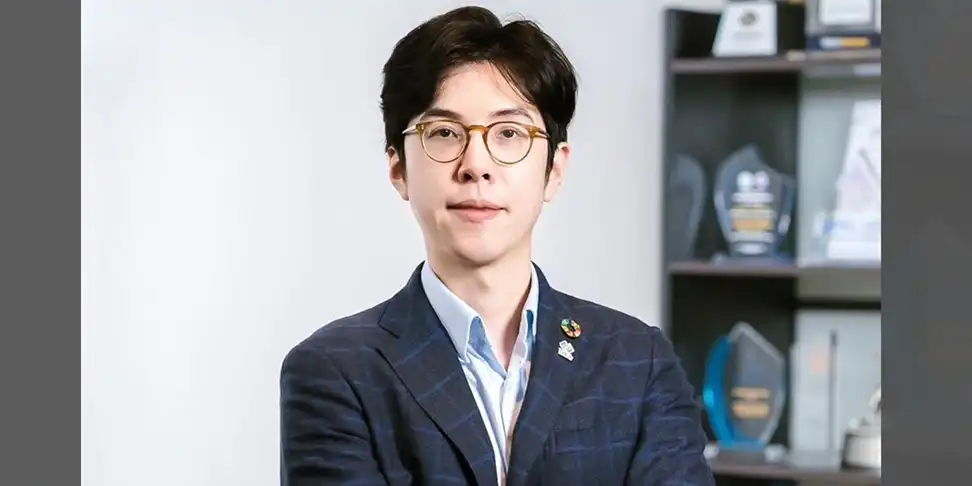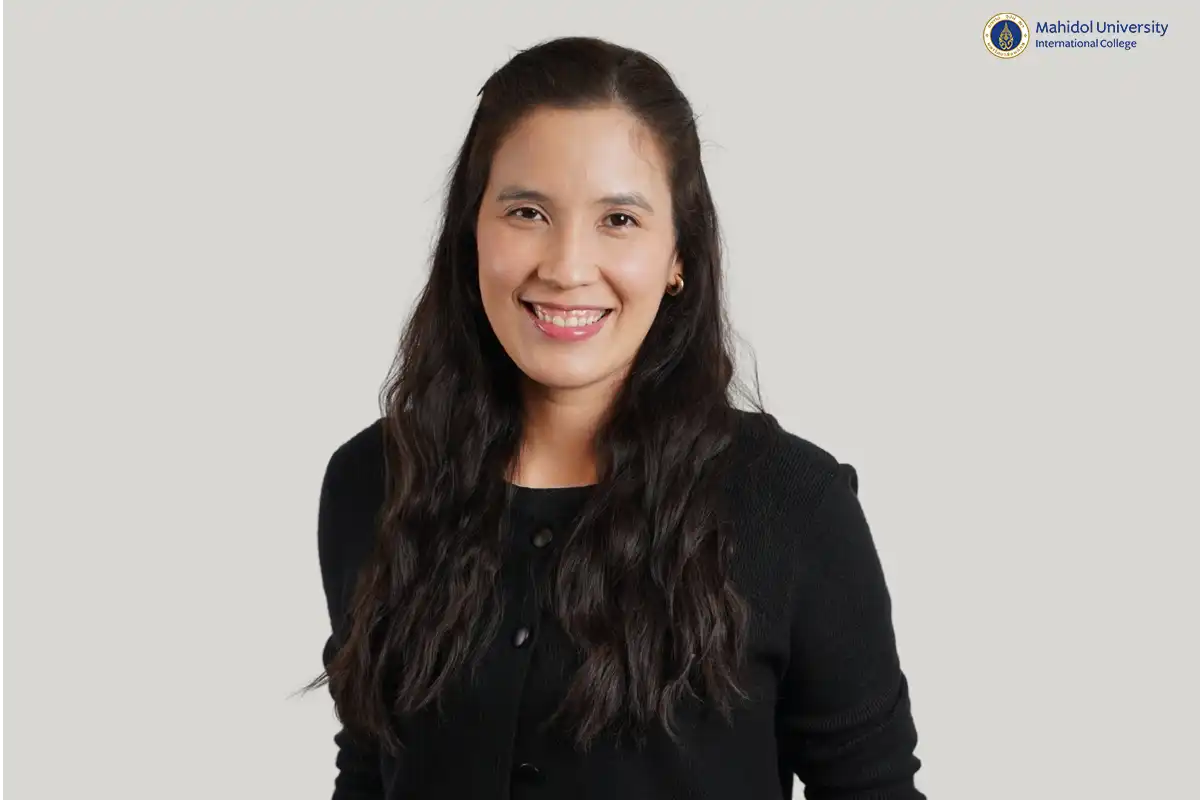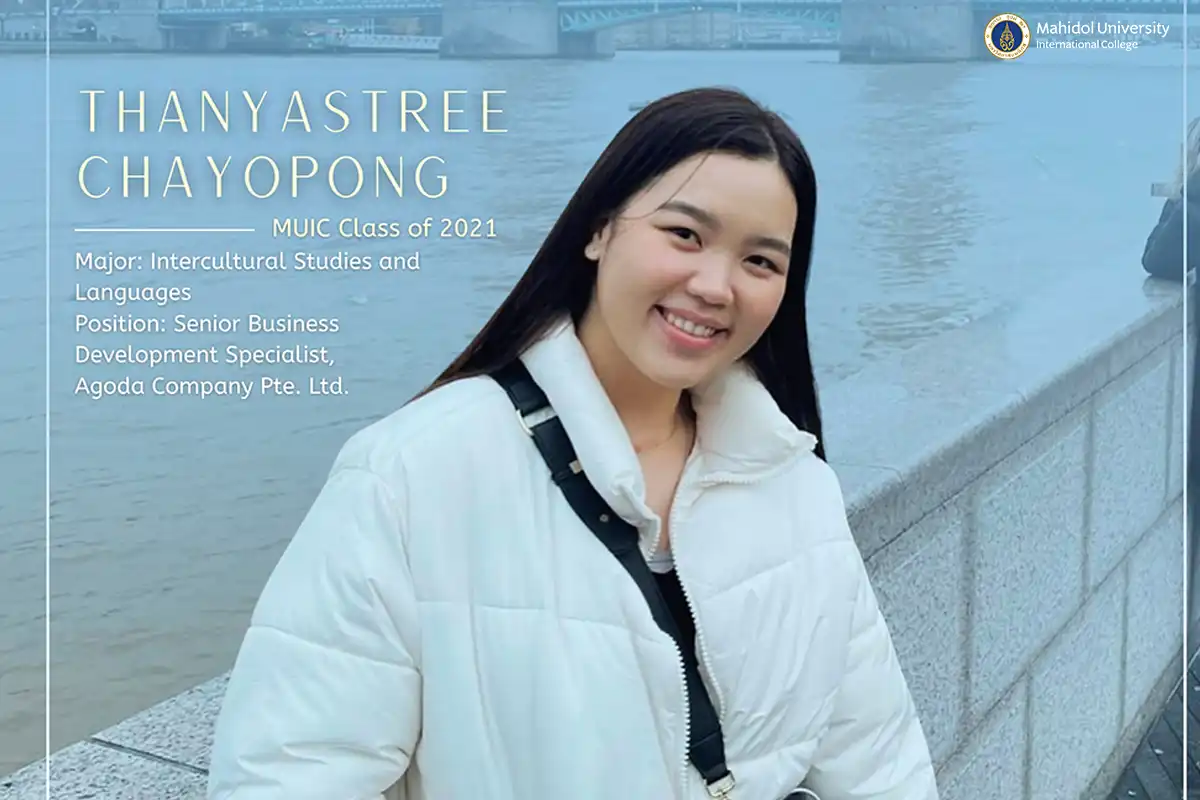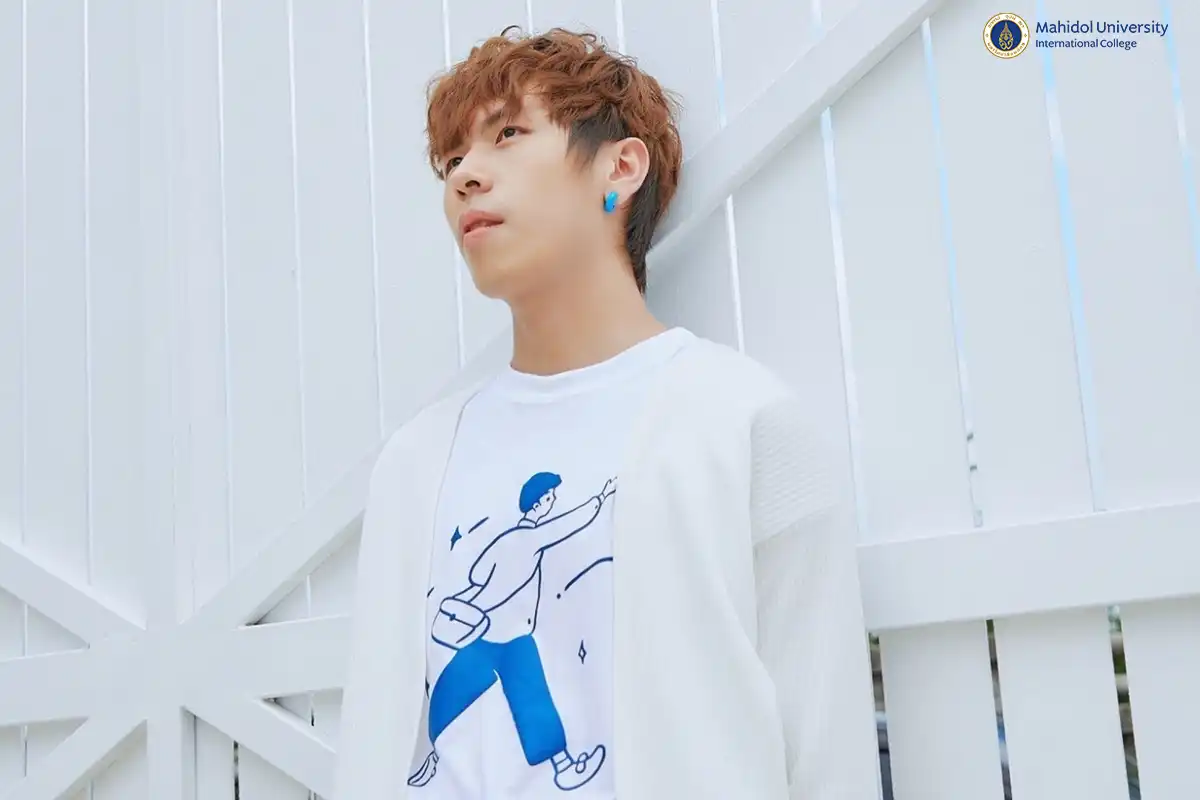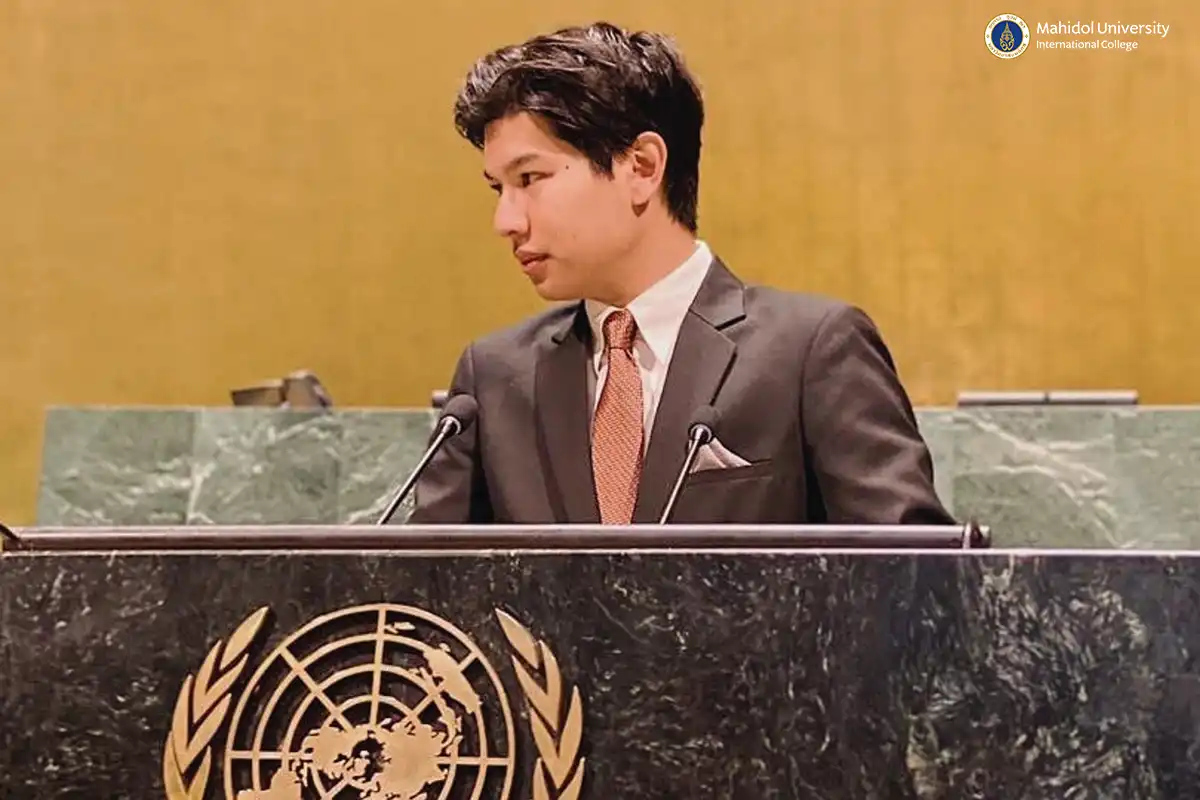Please choose a news and article category.
Recent MUIC Events
Change of major Trimester 2/2025-2026
MUIC Job Fair 2026
FAST-TRACK IELTS # 6
MUIC 360 Degrees
From Hospitality to Global Sustainability: An MUIC Alumna’s Inspiring Journey
September 4, 2025 2025-09-04 4:22From Hospitality to Global Sustainability: An MUIC Alumna’s Inspiring Journey
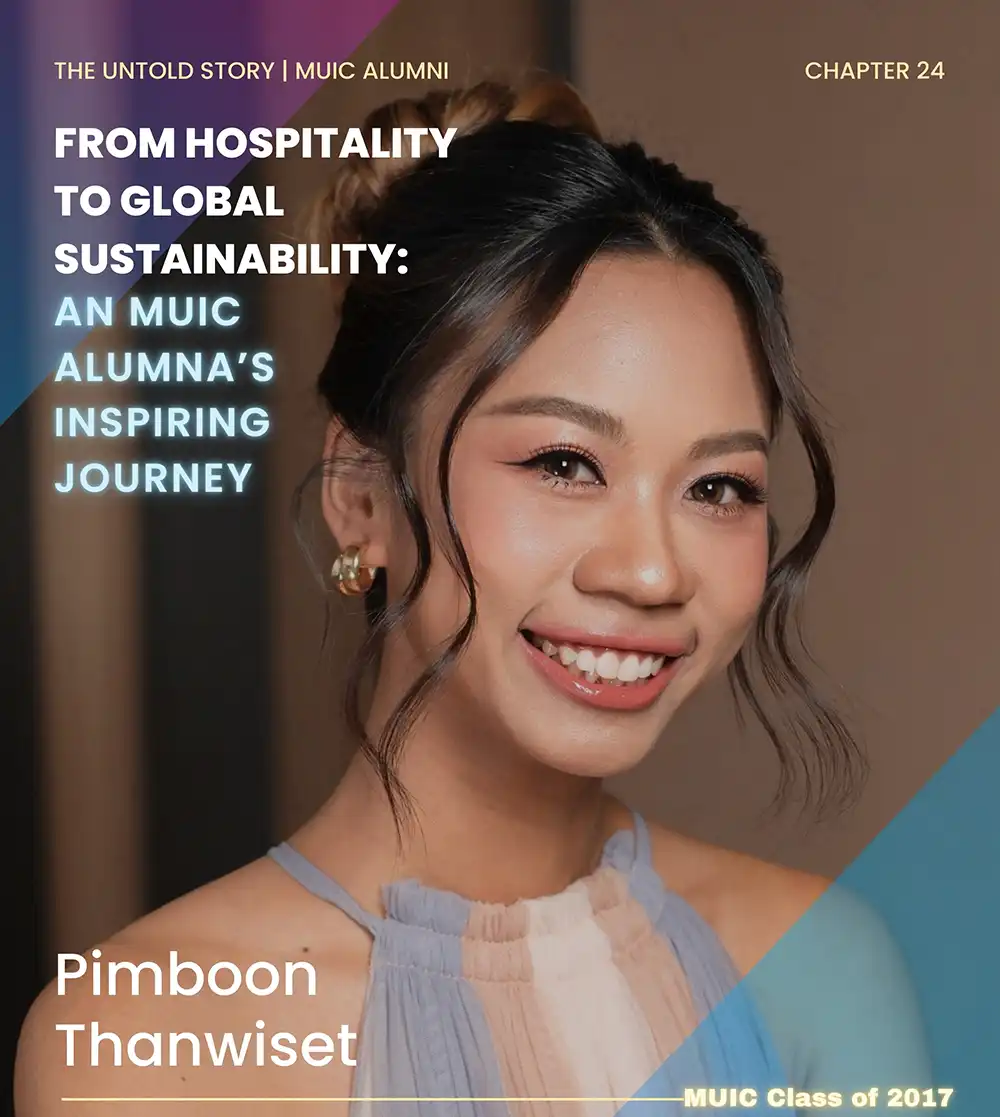
From Hospitality to Global Sustainability: An MUIC Alumna’s Inspiring Journey
The Untold Story – MUIC Alumni Chapter 24
Topic: From Hospitality to Global Sustainability: An MUIC Alumna’s Inspiring Journey
- Could you introduce yourself and share a brief overview of your career journey since graduating from MUIC?
I’m Pimboon Thanwiset, but you can call me Fon. Traveling has always been my passion, and I believe that working in a field I’m genuinely curious about makes the journey much more meaningful. My time at MUIC first sparked my interest in sustainable tourism. After graduating, I spent two years managing my family’s hotel in Nakhon Phanom, which inspired me to create a greater impact, not just for my province, but also for destinations across Thailand. This led me to pursue a Master’s degree in Sustainable Destination Development at Uppsala University in Sweden. Today, I’m a Sustainability Specialist at Carbonwize, where we help organizations measure their carbon emissions and work towards their sustainability goals.
- You studied International Hospitality Management. What inspired your shift into the field of sustainability?
The concept of “sustainability” first caught my interest while I was studying for my Bachelor’s degree in International Hospitality Management at MUIC. That was the time when I took a course on “Sustainable Development for the Hospitality and Tourism Industry.” It sparked my curiosity about what sustainability truly means, the challenges it presents, and how it can be applied to real-world contexts. Since then, I told myself that if I had the chance to pursue a Master’s degree, it would be in the field of Sustainable Development. Studying in Sweden gave me new perspectives on tourism and showed me that sustainability is not only challenging but also full of opportunities. That experience strengthened my motivation to dig deeper into this field and to create a greater impact on society.
- For readers who may not be familiar, could you explain what GSTC standards are and why they matter in the tourism industry?
Sure. GSTC stands for the Global Sustainable Tourism Council, which develops and manages global standards for sustainable travel and tourism, known as the GSTC Standards. These cover different areas of the industry: Destinations, Hotels and Tour Operators, MICE (meetings, incentives, conferences, exhibitions), and Attractions such as museums, theme parks, and national parks.
Since “sustainability” can mean different things to different people, the GSTC Standards provide a common global framework built on four pillars: sustainable management, socioeconomic benefits, cultural preservation, and environmental protection. At the same time, they are designed to be adaptable to local contexts. For example, Thailand’s Green Hotel Plus is officially recognized as equivalent to the GSTC Standards, tailored to fit the country’s tourism sector.
- What does Carbonwize do, and what are your key responsibilities as a Sustainability Specialist?
Carbonwize is a Thai tech startup that provides digital platforms to help organizations manage their carbon footprint and achieve sustainability goals. We currently offer two products: Carbonwize, a carbon management platform, and Sustainwize, a sustainability data management platform for hotels.
As a Sustainability Specialist, I ensure our products align with global standards such as GSTC. I also work closely with hoteliers and tourism professionals to raise awareness of sustainability practices, while supporting clients in using our platforms to collect data and pursue certifications like GSTC.
- Do you use any AI tools in your sustainability work? How do they help?
Of course! In the fast-growing tech industry, AI tools are very helpful for managing sustainability data and developing smart platforms. I often use ChatGPT to quickly summarize sustainability criteria, standards, and regulations, which saves a lot of time compared to reviewing them manually. It also helps compare different standards to support faster decision-making. However, I always double-check the information and sources for accuracy, as AI isn’t always correct.
- What has been the biggest challenge in your career so far, and how did you overcome it?
For me, the biggest challenge has always been building trust in a new environment, whether it’s a new company, culture, client, or stakeholder. I usually overcome this by “leading by doing.” For example, right after graduating from MUIC, I became the manager of my family hotel, and many employees doubted my experience. I had to prove myself by actively handling housekeeping, reservations, and guest service tasks, which are the skills I had gained during my internship at Salaya Pavilion Hotel. Later, during my time in Sweden, I helped the Gotland food organization and the local tourism authority develop a food tourism campaign. As a Thai woman with limited knowledge of Swedish language, I had to work closely with local farmers, producers, and authorities. To build trust, I immersed myself in their culture and joined their activities, ensuring I understood their perspective and could collaborate effectively.
- Looking ahead, what trends or innovations in sustainable tourism excite you the most?
When I think about tourism, I see it from a destination-wide perspective. Tourism should involve and benefit everyone in the destination, especially local residents, not just large hotels or corporations. I’m particularly excited about sustainable tourism campaigns, products, and services that support local businesses and SMEs, as they make up a significant part of the tourism ecosystem. If sustainability is driven from the bottom up, it can have a far greater impact on the overall destination. At the same time, raising demand for sustainable tourism among travelers can encourage service providers to improve their offerings, which helps sustain the entire tourism supply chain.
Moreover, “destination development” shouldn’t be seen only as building new infrastructure or attractions. Policymakers should prioritize preserving cultural and natural resources, while raising awareness among both travelers and residents so they can actively protect their heritage for future generations.
- How did your time at MUIC, both in and outside the classroom, prepare you for your career, and was there a defining moment that shaped who you are today?
MUIC definitely prepared me for a career in hospitality and tourism, and it was also where my curiosity about sustainability began, which is something that has shaped who I am today.
One of my favorite experiences outside the classroom was the freshmen-senior activities (P’Group and Nong Group), which created strong bonds between students. I was also a member of the Thai Music Club, which allowed me to connect with students from other majors. These connections from outside class activities proved valuable later when exploring career opportunities in new industries. Apart from that, I also got an opportunity to assist my professors in conducting research on barriers of sustainability in hotel venues, which deepened my interest in pursuing a career in this field.
MUIC also offered international experiences, such as summer courses, exchange programs, and friendships with students from around the world, which helped me develop cultural awareness and adaptability. Outside of work, I enjoy spending time in nature, freediving, yoga, and hiking, which reflects my personal interest in sustainability. Now, I’m eager to gain more practical experience with the local community to enhance their well-being.
- Based on your experience, what key skills or mindsets should MUIC students develop to succeed in today’s world?
I would say the most important mindsets are to “never stop learning” and to be a “glass-half-full” person. During my time abroad in the USA and Sweden, I realized how little I knew about the world compared to other international students, so I had to work and study harder to engage in the same level of discussion. Moreover, today’s world changes so quickly that what we learn in class may already be outdated by graduation day, and things don’t always go as planned. I encourage MUIC students to stay open to new opportunities and learn from real experiences, not just textbooks. Participating in activities outside the classroom and internships can be just as valuable as what you learn in class.
- Motto
Take all the opportunities that come in your way and don’t wait for others to do something you want to do because you don’t want to do it alone.
Ms. Pimboon Thanwiset
MUIC Class of 2017
Major: International Hospitality Management
Position: Sustainability Specialist with In-depth Knowledge of GSTC Standards, Carbonwize
